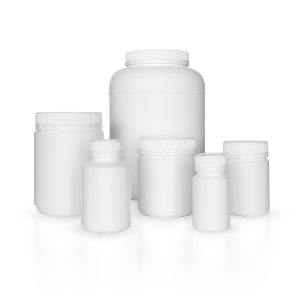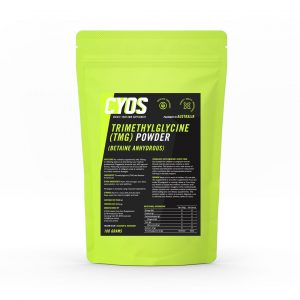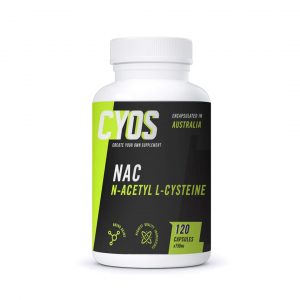


Longevity
J J 24 Apr 2020
Coenzyme Q10 and how it could support you!
Share
CoenzymeQ10 is a molecule made naturally in the body, it is stored in the Mitochondria (known as the cells powerhouse which creates energy) and it is required by every cell in our body to function effectively.
Studies have found that with supplementation CoQ10 can support:
-
Reduction in Migraines & Headaches
-
Fibromyalgia
-
Memory problems
-
Oxidative damage and inflammation of the veins and arteries (if left untreated can result in heart failure)
-
Fertility (Male & Female)
-
Exercise Performance
Unfortunately, production of CoQ10 is shown to decrease as we age therefore, taking a CoQ10 supplement can be very beneficial.
Aside from ageing, there are other factors that can contribute to the reduction of CoQ10 in our bodies. The use of prescription medication such as Statin drugs, people with higher levels of stress, those with nutritional deficiencies (in particular B6) and those with genetic defects in CoQ10 synthesis or utilisation have been shown to have lower levels of CoQ10 in the body.
It is possible to get CoQ10 in the body through diet and nutrition but getting adequate levels can be hard to monitor so supplementation is your best bet.
Foods that contain CoQ10 include;
-
Nuts & Seeds: Sesame seeds, pistachios
-
Legumes: Soybeans, Lentils and Peanuts
-
Fruit & Vegetables: Oranges, Strawberries, Cauliflower, broccoli, spinach
-
Organ & Muscle Meat: Heart, Liver, Kidney, Pork, Beef, Chicken
-
Fatty fish
Migraines & Headaches
As CoQ10 lives in the mitochondria of the cells, it can help decrease inflammation that causes migraines [9]. A study on 42 people who supplemented CoQ10 found compared to the placebo group their migraines were reduced [10]. A larger study on 1550 people with low CoQ10 levels experienced fewer and less severe headaches and migraines after supplementing with CoQ10 [11].
Fibromyalgia
A number of case studies found improvement in the symptoms of Fibromyalgia with 300mg CoQ10 daily for three months. The studies found to increase concentrations of CoQ10 in blood mononuclear cells to levels similar to control patients alongside an improvement of headaches [1]. Supplementing CoQ10 (300mg) appears effective in reducing symptoms of fibromyalgia and all the evidence is currently promising.
Memory Problems
As mitochondria are the main energy generators of brain cells, their function tends to decrease with age which can lead to diseases like Alzheimer’s and Parkinsons. CoQ10 has been shown to protect brain cells from oxidative damage and reduce the possibility of developing brain diseases [12].
Oxidative Damage
Heart failure is a consequence of conditions such as high blood pressure and coronary artery disease. In a study of 420 people with heart failure, treatment with CoQ10 for two years improved their symptoms and reduced their risk of dying from heart problems [7]. Another study showed a treatment group of 641 people for 1 year supplementing with CoQ10 or placebo, at the end of the study those who took CoQ10 were hospitalized less frequently and had fewer serious complications [8].
Fertility
Male Fertility
The role of CoQ10 in seminal fluid is thought to be in part due to exerting an anti-oxidative effect [2]. CoQ10 in semen is correlated with sperm count and motility and has twice been correlated to total antioxidative capacity of semen [3]. Studies that measure fertility rates noted an improvement with 60mg of CoQ10 daily for 103 days, and in one pilot study increased fertility (3 out of 22 couples) noted pregnancy [4]. Oral intake of CoQ10 in infertile men can increase seminal CoQ10 concentrations.
Female Fertility
CoQ10 is directly involved in the process of the decline in the number and quality of female eggs. As you age, CoQ10 production slows making the body less effective at protecting eggs from oxidative damage [6]. Supplementing with CoQ10 may help and even reverse this age related decline in egg quality and quantity.
Exercise Performance
Supplementation of CoQ10 (100mg or 300mg) for 8 days prior to a 210 minute cycling test reported less fatigue with 300mg relative to placebo and appeared to preserve performance without altering average output [5].
Summary
CoQ10 is a vitamin like compound that seems to have many health benefits with its production of cellular energy and serving as an antioxidant. These properties mean it could improve overall health and reduce oxidative damage that leads to muscle fatigue, brain and heart diseases. As the production of CoQ10 decreases with age, all adults could benefit from more of it, whether that be through supplementation or making sure you’re getting adequate amounts through your diet.
[1] https://www.ncbi.nlm.nih.gov/
[2] https://www.ncbi.nlm.nih.gov/
[3] https://www.ncbi.nlm.nih.gov/
[4] https://www.ncbi.nlm.nih.gov/
[5] https://www.ncbi.nlm.nih.gov/
[6] https://www.ncbi.nlm.nih.gov/
[7] https://www.ncbi.nlm.nih.gov/
[8] https://www.ncbi.nlm.nih.gov/
[9] https://www.ncbi.nlm.nih.gov/
[10] https://www.ncbi.nlm.nih.gov/
[11] https://www.ncbi.nlm.nih.gov/
[12] https://www.ncbi.nlm.nih.gov/
CYOS blog content is for informational and educational purposes only, and should not be considered medical advice, diagnosis or treatment recommendations. Always consult with your doctor or medical professional before using any dietary supplements or if you suspect you have any medical concerns or issues.
Share
SHOP OUR PRE-MADE CAPSULES RANGE
100% Pure • Encapsulated in Australia • Vegetarian Capsules • No Fillers • No Additives • No Binders • No Anti Caking Agents • Allergen Free • No Preservatives • Non GMO
Our best sellers
 Search Products
Search Products
 All Products A-Z
All Products A-Z
 Pre-Made Capsules
Pre-Made Capsules
 Additives
Additives
 Amino Acids
Amino Acids
 Anti-Oxidants
Anti-Oxidants
 Beauty
Beauty
 Bioactive Compounds
Bioactive Compounds
 Bulk Items
Bulk Items
 Empty Capsules
Empty Capsules
 Fats & Oils
Fats & Oils
 Fibers
Fibers
 Herbal Extracts
Herbal Extracts
 Joints
Joints






 Mushroom Extracts
Mushroom Extracts Nootropics
Nootropics Packaging
Packaging Probiotics & Digestion
Probiotics & Digestion Proteins
Proteins Sleep
Sleep Stimulants
Stimulants Super Blends
Super Blends Super Foods
Super Foods Tools
Tools Vitamins & Minerals
Vitamins & Minerals Weight
Weight Workout
Workout